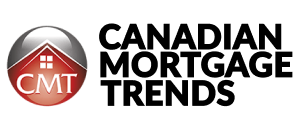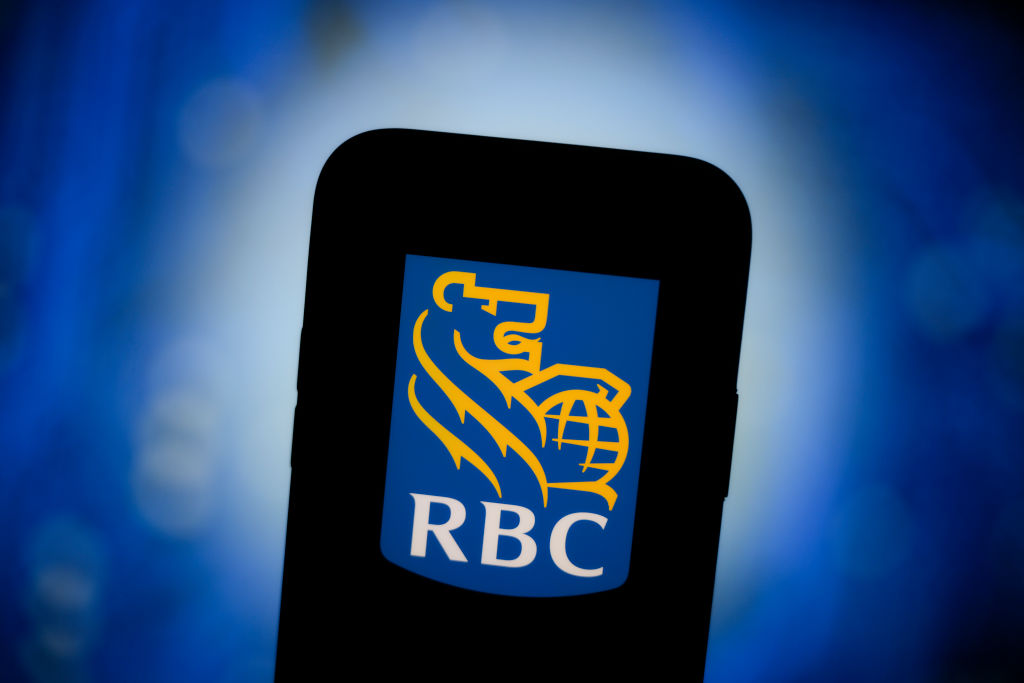RBC is Canada’s largest mortgage lender, but their posted rates typically serve as starting points for negotiation rather than final offers. The bank’s mortgage products cater to diverse needs, from first-time homebuyers to property investors. Despite more restrictive prepayment privileges than competitors, RBC’s extensive branch network and ability to provide rate discounts for qualified borrowers make them a compelling choice for many Canadians.
This comprehensive review examines RBC’s complete mortgage lineup, including fixed and variable rate options, specialized products like the Homeline Plan, and unique offerings such as the U.S. HomePlus Advantage program. We’ll explore how to secure the best rates through negotiation, analyze prepayment terms and penalties, and compare their offerings against major competitors like TD, BMO, and Scotiabank.
Whether you’re considering RBC for a new mortgage, looking to refinance, or approaching renewal, this guide provides essential insights for making an informed decision about Canada’s largest mortgage provider.
Quick links
RBC special offer mortgage rates
| Fixed mortgage rates | Variable mortgage rates | |
|---|---|---|
| 1-year | 5.49% | |
| 2-years | 4.79% | |
| 3-years | 4.29% | |
| 4-years | 4.34% | |
| 5-years | 4.29% | 4.55% |
| 5-years (High-ratio) | 3.99% | 4.25% |
Updated: March 20, 2025
RBC Prime rate
RBC’s Prime Rate currently stands at 4.95%. It serves as the foundation for their investment and lending products, including mortgages, and typically moves in tandem with the Bank of Canada’s overnight rate adjustments. When the Bank of Canada overnight rate drops, RBC variable mortgage rates usually follow suit, and so do the market rates for a fixed mortgage—but not always.
Like other major banks, RBC advertises posted rates, a starting point for negotiation. These posted rates are intentionally higher and should never be accepted without discussion. Additionally, RBC publicly displays “Special Rates,” discounted posted rates that can result in higher fees.
RBC’s mortgage rates are negotiable, with room for discounts off posted rates, particularly for well-qualified borrowers. While RBC may not always offer the market’s lowest rates upfront, its comprehensive mortgage features make it a strong contender for borrowers willing to negotiate.
RBC overview
Founded in 1864 as the Merchants’ Bank of Halifax, RBC began financing maritime merchants, then European and Caribbean trade before changing its name to The Royal Bank of Canada in 1901.
The bank expanded rapidly across Canada and internationally, eventually becoming Canada’s largest bank. Today, RBC has around 97,000 employees and serves over 17 million clients.
As Canada’s largest lender, RBC distinguishes itself with unique offerings, such as a 95% LTV vacation home mortgage product, which makes second home ownership more accessible. While RBC’s posted rates typically align with other major banks, they’ve recently engaged in a mortgage rate war. However, their rates generally remain higher than those offered through mortgage brokers.
RBC advantages
- An extensive mortgage product range that includes unique offerings like 95% LTV vacation home mortgages, cross-border mortgages, and a 25-year fixed-rate mortgage.
- A 120-day rate hold guarantees to protect borrowers from rate increases during home shopping.
- Flexible payment frequencies, including weekly, bi-weekly, semi-monthly, monthly, and accelerated options.
- Access to RBC’s extensive branch network with over 1,200 locations for in-person service.
- Management authorization can be requested to negotiate better rates, especially with competing offers.
RBC drawbacks
- Mortgage rates are often less competitive and require negotiation.
- More restrictive prepayment privileges (10% of initial balance annually) compared to competitors offering 15% to 20%.
- Strict lending requirements make qualification difficult for those with lower credit scores.
RBC mortgage products and services
Core mortgage products:
Fixed-Rate Mortgages
RBC’s Fixed-Rate Mortgages offer terms ranging from 6 months to 25 years, with a 120-day rate hold guarantee that protects borrowers from rate increases during home-buying. The program provides predictable payment structures with locked-in interest rates, allowing borrowers to know exactly how much each payment goes toward principal and interest throughout the term.
While RBC’s fixed rates are comparable to those of other major banks, they are typically less competitive than rates offered through mortgage brokers. Customer experiences are mixed; some praise the informative and straightforward process, while others report frustration with customer service response times.
Variable-Rate Mortgages
RBC’s Variable-Rate Mortgages currently offer posted rates of 0.60% below prime, with discounts up to 0.90% for high-ratio mortgages. As usual, they feature fixed payment amounts despite rate fluctuations. The program includes a convertibility option, allowing borrowers to switch to a fixed rate if market conditions change.
Customer reviews generally indicate positive experiences, with some praising the straightforward process and lower rates. The recent trigger rate debacle has impacted variable-rate borrowers, but this is not specific to RBC.
Mortgage Refinance
RBC’s Mortgage Refinancing allows homeowners to make structural changes to their existing mortgage, like changing terms lengths, rates, and amortizations. Think of it as replacing your existing mortgage, which also permits access to home equity for cash—though refinancing before your mortgage renewal can result in mortgage-breaking fees. Refinancing usually requires a new approval process, including income verification, employment history, and property appraisal. RBC’s landing page is rather vague, making it challenging to understand their refinancing conditions.
Specialized Mortgage Products:
RBC Homeline Plan
The RBC Homeline Plan combines a traditional mortgage with a home equity line of credit (HELOC), allowing homeowners to access up to 80% of their home’s value. As borrowers pay down their mortgage principal, the available credit in their HELOC automatically increases, providing flexible access to funds at interest rates lower than most other borrowing options. It’s a convenient way to leverage home equity to consolidate debt, finance home improvements, or keep it as an emergency fund.
CashBack mortgage
The RBC Cash Back Mortgage offers first-time homebuyers up to 7% cash back of their mortgage value, paid on the mortgage advancement date. The program requires a closed fixed term of 1-10 years with an amortization period between 5-30 years, and borrowers must maintain their mortgage until the end of the negotiated term to keep the cash-back benefit. While the cash-back ceiling of $20,000 dilutes the full 7% benefit, this product offers a notable percentage, making it particularly attractive for funding closing costs.
Investment Property Mortgage
The RBC Investment Property Mortgage provides financing for up to 80% of a rental property’s appraised value, requiring a minimum 20% down payment as these properties are not eligible for high-ratio default insurance. Borrowers must demonstrate sufficient rental income through existing tenancy documentation or market rent opinions, maintain a good credit history, and show adequate non-rental income to cover mortgage obligations. The mortgage targets investors looking to build rental portfolios, convert existing homes to rental properties, or purchase properties for their children.
Vacation Home Mortgage
The RBC Vacation Home Mortgage allows financing up to a whopping 95% of a vacation property’s value, making it Canada’s first mortgage solution offering high financing for secondary residences. The program accommodates various property types, with flexible terms and mortgage features tailored to individual needs. However, default insurance is required for financing over 80% of the appraised value and, in some cases, for funding of over 65%.
RBC U.S. HomePlus Advantage
The RBC U.S. HomePlus Advantage program offers a cross-border mortgage for Canadians purchasing property in the United States. With financing available in all 50 states, the program requires a minimum 20% down payment and can rescind up to $4,500 USD in closing costs. Borrowers receive access to an extensive support network, including real estate agents, tax experts, legal advisors, and cross-border mortgage specialists.
RBC Construction Mortgage Multi-Units Program
The RBC Construction Mortgage Multi-Units Program enables homeowners to finance adding up to five new housing units through new construction or retrofitting existing structures. On the heels of Canada’s recently proposed Secondary Suite Loan Program, this new mortgage product targets homeowners looking to create living space for family members or generate rental income.
Additional Mortgage Features:
- Extended amortization: Allows stretching mortgage payments up to 30 years, reducing monthly payments but increasing total interest costs. As per recent CMHC changes, this is now eligible with a 5% down payment.
- Prepayment privileges: For closed mortgages, this program permits paying up to 10% of the original mortgage amount annually without penalties.
- Portability: You can transfer your existing mortgage balance and terms to a new property without penalties, maintaining the same interest rate and conditions with only minor bank fees.
- Open mortgages: Allows unlimited prepayment without penalties but generally carries higher interest rates than closed mortgages.
- Closed mortgages: Offers lower interest rates but restricts prepayment options and includes penalties for early payoff.
- 120-day rate hold: Guarantees a mortgage rate for four months while house hunting.
- Skip-a-Payment: This allows skipping one monthly payment every 12 months.
- Double-up payments: Ability to prepay your mortgage faster with enhanced payments.
- HomeProtector Insurance: Optional mortgage coverage during disability, critical illness, or death.
- RBC mortgage offers: These are limited-time, special mortgage deals that currently include Avion points, savings, and cash back on select mortgages.
- 25-Year fixed-rate mortgage: A guaranteed rate for 25 years. Offers predictable payments and long-term stability but is “closed,” meaning prepayment restrictions.
Factors influencing RBC’s mortgage rate
RBC’s mortgage rates are primarily influenced by the bank’s prime rate, which follows the Bank of Canada’s overnight rate, and government bond yields. The length of the mortgage term significantly impacts rates, with shorter terms typically offering lower rates than more extended terms. Open mortgages command higher rates than closed mortgages due to their prepayment flexibility, while the choice between fixed and variable rates reflects a trade-off between payment stability and potential savings.
Otherwise, the borrower’s loan-to-value ratio, debt-to-income ratio, and credit score play crucial roles in determining the final mortgage rate, with more creditworthy financial profiles typically qualifying for more competitive rates.
Getting the best mortgage rate with RBC
To secure the best RBC mortgage rate, start by building a strong negotiating position with a credit score above 680, a substantial down payment (ideally 20% or more), and a low debt-to-income ratio. Never accept RBC’s posted rates, as these are intentionally high starting points for negotiation. Instead, ask specifically about their special rates and current promotions.
Shop aggressively with other lenders and mortgage brokers to obtain competing offers, then use these as leverage when negotiating with RBC. Consider the bank’s Special Mortgage Offers, and emphasize your willingness to bring additional banking business to RBC. Customers have reported securing better rates by demonstrating competing offers and requesting exception pricing. Remember that RBC offers a 120-day rate hold, so you can lock in a favourable rate while continuing to negotiate.
RBC’s Mortgage Application Process
Eligibility Criteria
Income and debt service ratio
RBC evaluates your gross debt service (GDS) and total debt service (TDS) ratios. Your GDS includes projected housing-related costs, which must stay under 30% to 32% of gross income. Meanwhile, your TDS consists of all debts and must remain under 37% to 40%.
Lower ratios are more favourable, showing you have less money tied up and a higher probability of making mortgage payments. Otherwise, employment history requires at least two years of stable income, with self-employed applicants needing additional documentation.
Credit score
RBC residential mortgage clients have an average credit score of 791. Your credit report and history are thoroughly reviewed during underwriting to assess payment reliability.
Down payment
RBC requires a minimum 5% down payment for mortgages, which requires mortgage default insurance. However, aligning with CMCH guidelines, the 5% traditionally applies to home values under $500,000. Homes valuations between $500,000 and $1.5 million require a 10% down payment—expanded from the previous $1 million ceiling. This results in a blended down payment of 5% to 10%. Without mortgage default insurance, you’ll generally need a minimum 20% down payment.
Mortgage Pre-Approval
RBC’s True House Affordability tool provides an initial pre-qualification assessment without affecting credit scores. Afterward, the formal pre-approval process includes a 120-day rate hold and requires a meeting with a mortgage specialist who conducts a full underwriting review. Once the initial review is complete, RBC issues a conditional approval, which requires meeting specific criteria such as property appraisal, income verification, and down payment confirmation.
During this stage, mortgage specialists can request management authorization to secure better pricing or rate buy-downs, particularly if you’re negotiating with competing offers from other lenders. The pre-approval process typically takes 24 hours for an initial response.
Mortgage application checklist
As shown in RBC’s mortgage document checklist, you must show the following documentation:
- New property details
- Old property details (if applicable)
- Down payment confirmation
- Employment verification
Mortgage Prepayment Penalties
Closed Mortgage | Open Mortgage | |
|---|---|---|
| Variable-Rate | Three months’ interest | No prepayment penalties |
| Fixed-Rate | Higher of three months’ interest, or interest rate differential (IRD) | No prepayment penalties |
RBC structures its mortgage penalties differently for closed and open mortgages. Breaking your term early for closed mortgages triggers a prepayment charge, while open mortgages can be paid off anytime without penalty. Notably, RBC has a Mortgage Prepayment Charge Calculator to assist you.
With closed variable-rate mortgages, you’ll pay three months’ interest at your current rate, while fixed-rate mortgages require the greater of three months’ interest or the Interest Rate Differential (IRD). The IRD calculation, which can result in higher penalties, measures the difference between your original rate and the current posted rate for your remaining term, multiplied by your outstanding balance.
To help reduce potential penalties, RBC offers annual prepayment privileges for closed mortgages, allowing you to pay up to 10% of your original mortgage balance each year without charges. While this is more restrictive than other banks’ offerings of up to 20%, RBC also permits you to increase mortgage payment amounts by 10% each year.
Mortgage renewal
RBC provides a 180-day early renewal window and a 30-day rate guarantee. However, borrowers should never automatically accept their first renewal offer as these rates are typically higher than what’s available through negotiation. At renewal time, you have three main options: renew with RBC at a negotiated rate, switch to another lender, or refinance your mortgage without incurring prepayment penalties.
While RBC makes renewal convenient through their online banking platform and doesn’t require re-qualification for existing customers, their initial renewal rates are often posted rates that leave room for negotiation. Renewal also presents an ideal opportunity to reassess your mortgage needs, potentially refinance to access home equity, or consolidate debt without breaking your mortgage term, as you can make major changes to your mortgage structure without incurring penalties during this period.
RBC alternatives and competitors
Scotiabank
Scotiabank edges out RBC with more favourable prepayment privileges (up to 20% vs 10% annually), though both banks offer a 120-day rate hold, comparable mortgage rates, and similar mortgage products. Customer reviews indicate mixed experiences with both lenders, though Scotia’s eHome portal streamlines the mortgage process.
Bank of Montreal (BMO)
BMO stands out with its 130-day rate hold guarantee, exceeding RBC’s 120-day period and offering slightly more time for house hunting. BMO also provides more generous prepayment privileges, up to 20% annually, compared to RBC’s 10%. Both banks offer similar rates, mortgage products, and customer service experiences.
TD Bank
TD Bank also distinguishes itself from RBC through more generous prepayment privileges. It allows borrowers to increase mortgage payments by up to 100% and make a 15% lump-sum prepayment once per year, compared to RBC’s 10% limit. TD’s mortgage rates are similar to RBC’s, and they offer unique features like payment vacation options, which allow up to four months of skipped payments.
The takeaway
In conclusion, RBC is Canada’s largest mortgage lender, offering a comprehensive suite of mortgage products. While RBC’s posted rates tend to be higher than those available elsewhere, rates can be negotiated, particularly for well-qualified borrowers with competing offers.
Despite more restrictive prepayment privileges than competitors, RBC’s diverse product range, extensive branch network, and specialized programs—like vacation homes, construction mortgages, and cross-border solutions—make the bank particularly convenient.
However, prospective borrowers should carefully compare offerings across lenders and always negotiate rates, as RBC’s initial offers typically leave substantial room for improvement through discussion and competitive shopping.
Frequently Asked Questions
Are RBC mortgages good?
RBC mortgages offer unique products like 95% LTV vacation home mortgages and comprehensive cross-border solutions. However, their rates are typically higher than those provided elsewhere, and they have more restrictive prepayment privileges than competitors.
Can I negotiate my mortgage rate with RBC?
Yes, RBC’s posted rates are a starting point for negotiation, and borrowers can potentially secure better rates by presenting competing offers and requesting management exceptions.
What are the pros and cons of RBC’s Homeline Plan?
The Homeline Plan provides flexible access to home equity through a combined mortgage and HELOC that increases available credit as you pay down the mortgage principal. However, its collateral charge structure may result in higher legal fees when switching lenders.
What credit score do you need for an RBC mortgage?
RBC typically requires a minimum credit score of 680 for prime mortgages, with their average mortgage holder scoring 791. As a big bank, they’re more restrictive than alternative lenders.
Last modified: March 20, 2025




